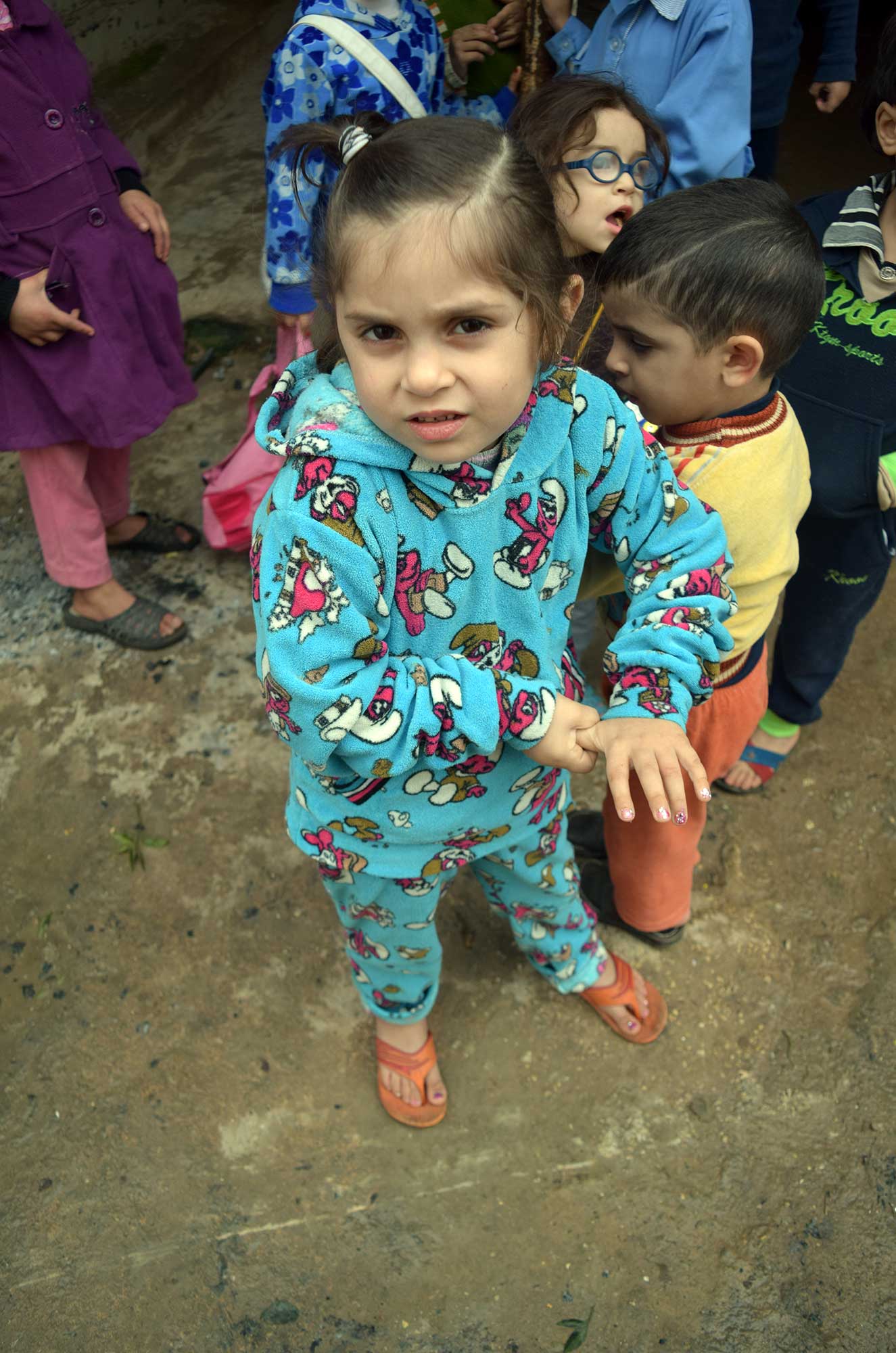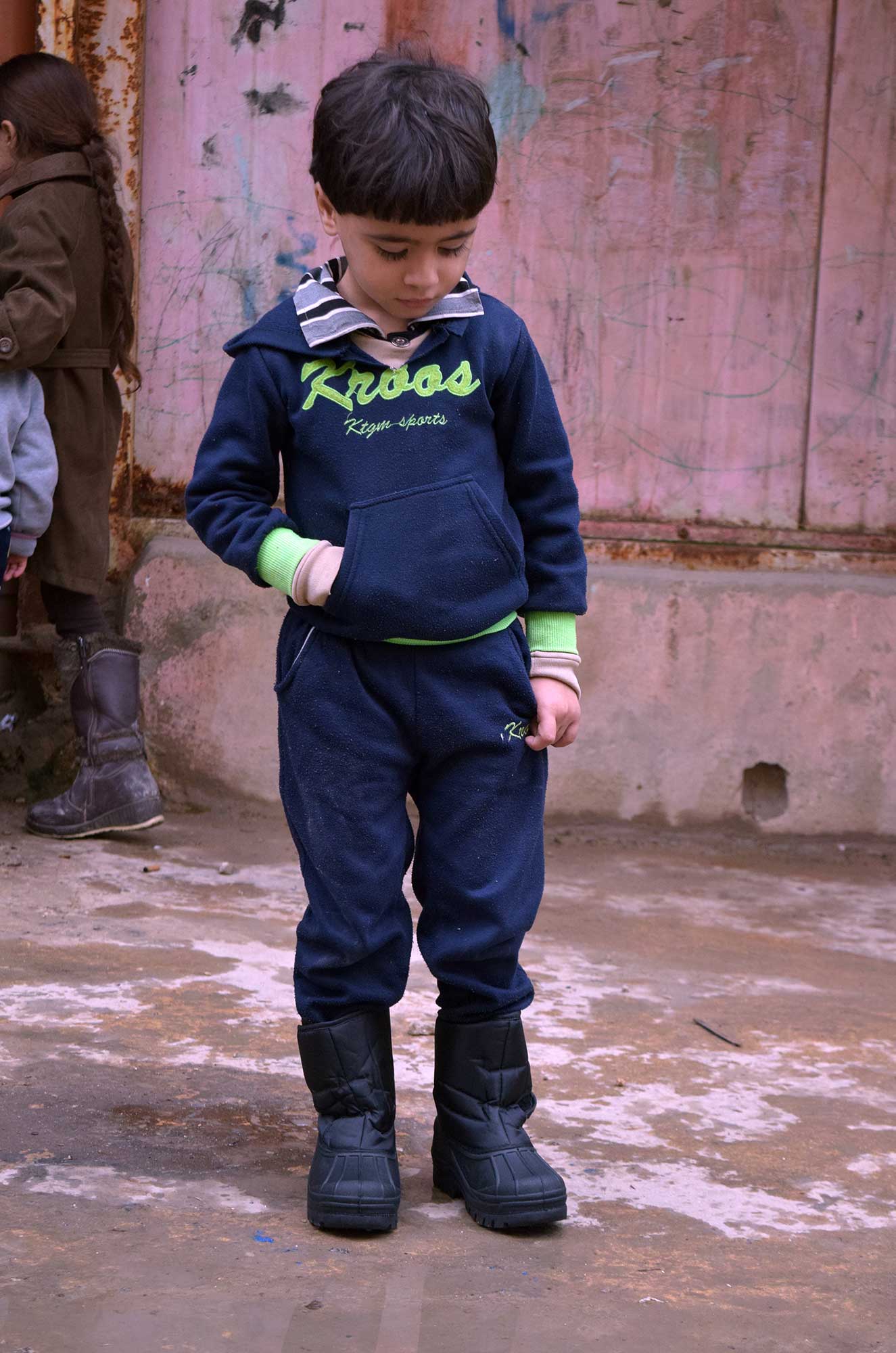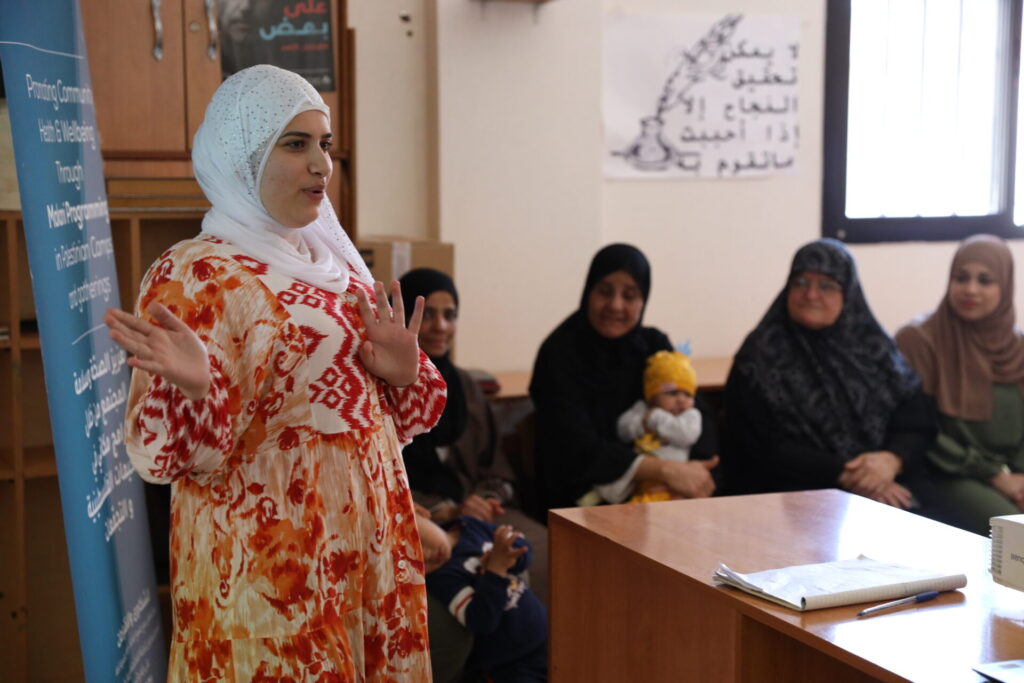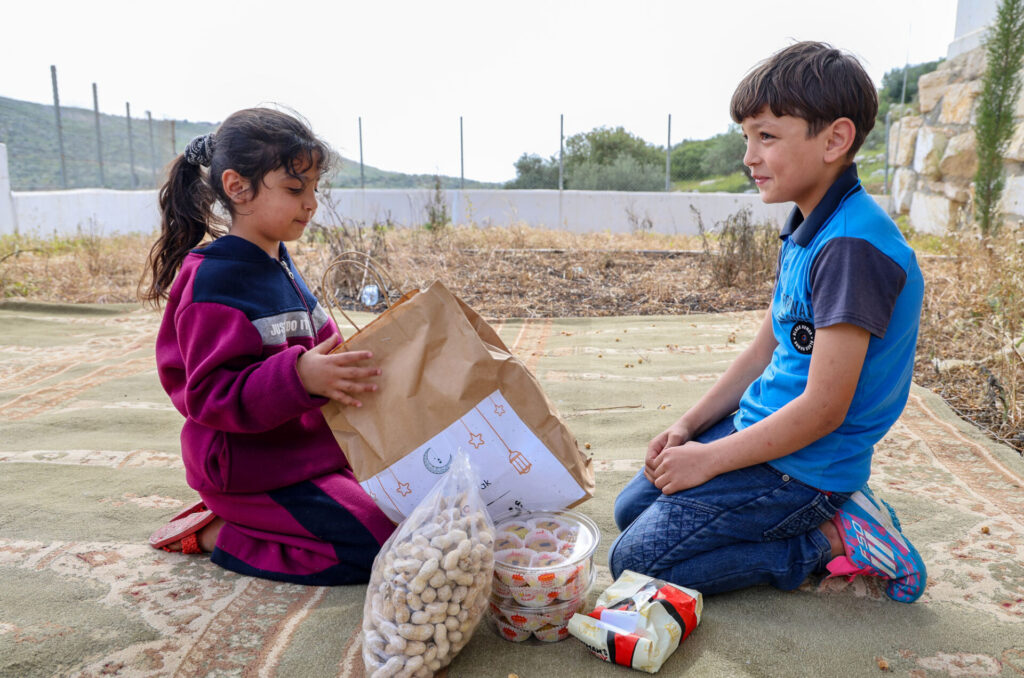Feb, 2016
Heavy rains and cold weather are making life even more miserable for refugees in Lebanon.


In Nahr El Bared refugee camp and nearby makeshift shelters, young children are often seen playing in streets barefoot or in broken sandals and summer clothes.
Anera is helping hundreds of refugee families there to better cope with the cold by delivering new TOMS winter boots.
Six-year-old Maria Dahoun is just one of the lucky beneficiaries and cannot believe her eyes when she receives a brand new pair of boots. “This is the nicest pair of shoes I’ve ever worn! They are soft and warm on the inside.”
Maria lives with her family in “the barracks” in Nahr el Bared. The Dahouns are one of 400 Palestinian families still living in metal barracks established in 2007, when clashes between the Lebanese army and militants destroyed much of Nahr el Bared camp. Their house was demolished and they were offered the temporary settlement while the camp was being rebuilt. But eight years later, Maria and her family are still living in the barracks, where Maria was born and raised.
The TOMS distribution is part of Anera’s ongoing efforts to help refugees in Lebanon living in the most vulnerable and isolated communities. Anera has delivered 7,000 pairs of TOMS winter boots in Lebanon, prioritizing the barracks on the edge of Nahr el Bared. This is the fourth year of Anera’s collaboration with TOMS Giving.
Quality Boots Make Playtime Much Safer for Refugee Children
Amid her miserable living conditions, Maria experiences a moment of joy as she and her classmates try on their new boots. “I was surprised to see we were getting these new warm boots,” she says, “This pair fits me perfectly.” Maria explains that her mother had bought her a pair of used shoes but they didn’t fit right and didn’t keep her feet dry and warm.
Maria’s mother is delighted and relieved. “Good shoes help children enjoy playing outdoors. They make them confident and they don’t worry about getting wet and cold.” Hanan says she made a mistake buying the used shoes but had no choice. “Good quality winter boots are expensive so we settle for whatever we can afford.”
As she watches Maria proudly marching around in her new boots, Hanan reminisces about their old home in Nahr El Bared. “I hope we will be able to return to our house someday so Maria and her siblings can feel safe and hopeful. I would love her to become a teacher and get the chance to live in a better place.”
“Children living in these metal containers are especially vulnerable in cold winter conditions,” explains Anera’s Lebanon health manager Dima Zayat. “They are extremely poor and cannot afford the basic needs of their families. We see many children running around barefoot in the area, which makes them vulnerable to illness and parasites from the muddy and often garbage-strewn streets.”
Hanan is no longer worried about Maria playing outside. Neither is Maria. “When I wear these shoes I don’t have to worry about getting wet feet when it’s raining and I step in mud or a rain puddle.”




